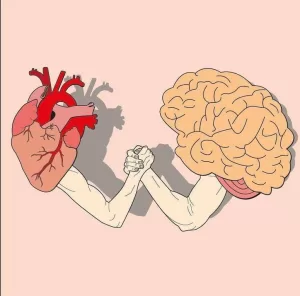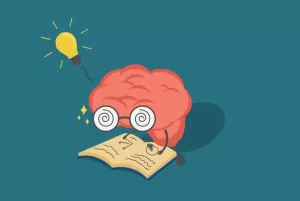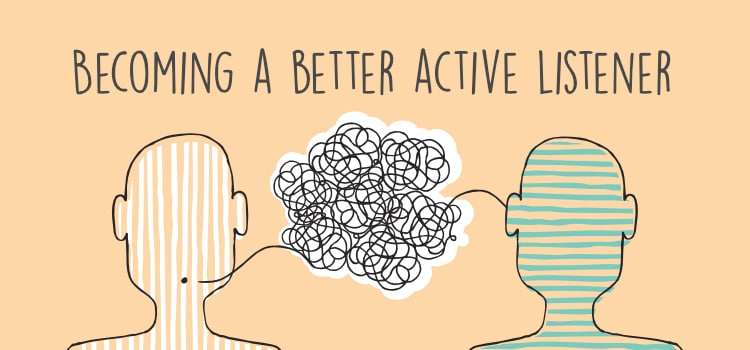What they DON’T Teach You In SCHOOL BOOK ?
Oh, I’ve got some interesting insights for you about the things they often don’t teach you in school! You know, schools focus a lot on academics, but there’s a whole bunch of practical life skills that often get left out. Things like managing personal finances, understanding emotional intelligence, effective communication, problem-solving, and even basic home maintenance. These are the kind of skills that can really help you navigate through adulthood successfully. So, while school is important, there’s a whole world of valuable knowledge beyond the classroom! If you’re looking for a book recommendation on this, “The Art of Non-Conformity” by Chris Guillebeau might be right up your alley. It’s all about pursuing your passions and creating your own path in life.
SO LET’S DIVE DEEP TODAY INTO What they DON’T Teach You In SCHOOL BOOK ?

Practical life Skills – Practical life skills are like your toolkit for navigating everyday situations and becoming more self-sufficient. Here are some important ones:
- Cooking: Being able to prepare basic meals not only saves money but also promotes a healthier lifestyle. So if you get time make sure to start cooking with simple recipes to make in early stage and build your cooking skills. It is really important for every Human Begin to learn cooking. Don’t worry, it can be fun sometimes to cook with you want to surprise your loved ones.
- Laundry and Clothing Care: Knowing how to do laundry, iron clothes, and handle different fabrics can help you keep your clothes clean and well-maintained.
- Basic Repairs: Simple fixes like changing a lightbulb, fixing a leaky faucet, or tightening a loose screw can save you time and money on calling a professional.
- Time Management: Learning to prioritize tasks, set goals, and manage your time efficiently can help you stay organized and reduce stress.
- Budgeting and Money Management: Creating a budget, tracking expenses, and understanding financial concepts like saving, investing, and debt can lead to better financial health.
- Critical Thinking and Problem-Solving: These skills help you analyze situations, make decisions, and find solutions to challenges, both big and small.
- Emotional Regulation: Understanding and managing your emotions, as well as developing empathy towards others, improves your relationships and overall well-being.
- Effective Communication: Learning to express yourself clearly, listen actively, and navigate different communication styles is essential for successful interactions.
- Basic First Aid: Knowing how to administer basic first aid, handle minor injuries, and respond in emergency situations can be crucial.
- Digital Literacy: Understanding internet safety, online etiquette, and how to discern reliable information from misinformation is important in today’s digital age.
- Public Speaking and Presentation Skills: Being able to communicate confidently and effectively in front of others is a valuable skill in various situations.
- Networking and Relationship Building: Building connections and maintaining professional and personal relationships can open doors to opportunities.
Remember, you don’t need to master all of these skills at once. Start by picking one or two that you feel would be most beneficial for your current stage in life, and gradually expand your skill set over time. Learning practical life skills empowers you to handle different situations with confidence and independence.

Money Managing – Managing money is like giving yourself a financial roadmap for a smooth journey through life and make you independent. Let’s know more about managing money. Don’t worry, I have broken it down into simple steps for you to understand it better :
- Create a Budget: Make a list of your monthly income (money you earn) and your expenses (things you spend money on). This helps you see where your money goes and plan accordingly.
- Prioritize Essentials: Start by covering your basic needs like housing, food, utilities, and transportation. These are your essentials.
- Set Savings Goals: Decide how much you want to save each month for short-term goals (like a vacation) and long-term goals (like buying a car or a house).
- Track Spending: Keep an eye on your spending habits. Are there any chances where you can cut back and save some money ? Small savings can add up over time.
- Emergency Fund: Save some money for unexpected expenses – like a medical bill or a car repair. Having an emergency fund can reduce stress when unexpected things happen.
- Avoid Debt: If possible, try not to spend more money than you have. Credit cards and loans can be helpful, but they also come with interest that can add up.
- Invest Wisely: Consider investing your money to potentially earn more over time. Learn about different investment options and their risks.
- Review and Adjust: Periodically review your budget and financial goals. Life changes, so your budget might need adjustments too.
- Learn About Personal Finance: Take time to understand concepts like interest rates, taxes, and different types of accounts (savings, checking, retirement, etc.).
- Seek Advice: If you’re unsure, don’t hesitate to seek advice from financial experts or resources. They can guide you in making informed decisions.
Remember, managing money is a skill that gets better with practice. Small steps today can lead to a financially secure and stress-free future.

Dealing with emotions – Dealing with emotions is like navigating a sea of feelings and finding your way to calm waters. Here’s a simple guide to help you manage your emotions:
- Recognize Emotions: Start by acknowledging what you’re feeling. Emotions are natural and normal – it’s okay to have them.
- Give Yourself Permission: Understand that it’s okay to feel different emotions. Don’t judge yourself for having certain feelings.
- Take Deep Breaths: When you’re overwhelmed, take slow, deep breaths. It can really help you to calm your mind and body.
- Express Emotions: Find healthy ways to express how you feel. Talk to someone you trust, write in a journal, or engage in a creative activity.
- Practice Mindfulness: Pay attention to the present moment. Mindfulness can help you manage strong emotions and reduce stress.
- Healthy Outlets: Engage in activities you enjoy, like exercising, listening to music, or spending time in nature. These can help you feel better.
- Positive Self-Talk: Replace negative thoughts with positive ones. Be kind to yourself and challenge any harsh self-criticisms.
- Problem Solving: If your emotions are tied to a specific issue, try to find practical solutions to address the problem.
- Seek Support: Reach out to friends, family, or a counselor if you’re struggling. Talking to someone can provide comfort and perspective.
- Take Breaks: If things become too intense, it’s okay to take a break. Step away from the situation to give yourself time to calm down.
- Learn from Emotions: Emotions often carry messages. They can help you understand your needs, desires, and boundaries better.
- Practice Patience: It’s okay if emotions don’t change overnight. Healing and managing emotions take time and effort.
Remember, everyone experiences emotions, and learning to navigate them is a skill you can develop over time. Don’t be too hard on yourself, and be open to seeking help when needed. You’ve got this!

Basic cooking – Basic cooking is like a tasty adventure in your own kitchen! Let’s keep it simple and enjoyable with these steps:
- Gather Ingredients: Pick a recipe and gather all the ingredients you’ll need. Check your pantry and fridge to make sure you have everything.
- Follow the Recipe: Read the recipe carefully. It’s like a cooking map that tells you what to do step by step.
- Prep Ingredients: Wash, peel, chop, and measure ingredients as instructed. This makes cooking smoother.
- Cooking Tools: Get your pots, pans, and utensils ready. Different recipes might need different tools.
- Start Cooking: Follow the recipe’s instructions. Cooking times and temperatures matter, so keep an eye on them.
- Stir and Mix: Some recipes need stirring or mixing. It helps ingredients blend together and cook evenly.
- Taste Test: While cooking, taste a little to make sure it’s turning out how you want.
- Be Patient: Cooking takes time. Enjoy the process and let flavors develop.
- Safety First: Handle hot items with care. Use oven mitts while cooking at home as a beginner and watch out for steam.
- Clean As You Go: While waiting for things to cook, clean up any mess you make. It makes the end easier!
- Plating: Once it’s ready, arrange your food nicely on a plate. Presentation matters!
- Enjoy Your Meal: Sit down, savor your creation, and celebrate your cooking success.
Start with simple recipes like pasta dishes, stir-fries, or scrambled eggs. As you gain confidence, you can experiment with new ingredients and techniques. Cooking is a skill that gets better over time, and the more you practice, the more delicious your meals will become!

Critical thinking – Critical thinking is like having a superpower for your brain – it helps you think smarter and make better decisions. Let’s know more:
- Question Each & Everything: Do not just accept things which are said to you at face value. Ask questions like “Why?”, “How?”, and “Is this true?”
- Analyze Information: Look closely at facts, ideas, or arguments. Break them down to see if they make sense.
- Consider Different Perspectives: Imagine you’re in someone else’s shoes. How might they see things? This helps you understand things better.
- Problem-Solving: When you face a challenge, think about different ways to solve it. Consider pros and cons before deciding.
- Think Ahead: Imagine what might happen next based on your choices. It’s like playing out different scenarios in your mind.
- Research: If you’re not sure about something, do some research. Find reliable sources to learn more.
- Be Open-Minded: Stay open to new ideas, even if they’re different from what you’re used to.
- Stay Curious: Keep asking questions and wanting to learn. Curiosity fuels your critical thinking.
- Trust Evidence: Rely on facts, data, and evidence to support your ideas and decisions.
- Think Reflectively: Take time to think about what you’ve learned and how it applies to real life.
- Learn From Mistakes: When things don’t go as planned, think about what you can learn from the experience.
- Practice, Practice, Practice: Like any skill, critical thinking gets better the more you practice.
Critical thinking helps you make choices that are well thought out and logical. It’s like having a superhero sidekick for your brain that guides you toward smarter decisions!

Problem-solving – Problem-solving is like being a detective – you gather clues and use your brain to find clever solutions. Let’s make it easy:
- Understand the Real Problem: Think and Figure it out. Know what your real problem is. Break it down into smaller parts if it’s complex.
- Gather Information: Collect facts, details, and any relevant info about the problem.
- Think Creatively: Come up with different ideas or ways to tackle the problem. Be open to think outside of the box, if needed.
- Evaluate Options: Look at your ideas. Which ones seem doable and could work?
- Make a Plan: Choose the best idea and create a step-by-step plan to solve the problem.
- Take Action: Put your plan into motion. Start working on the steps you’ve outlined.
- Adapt as Needed: If something doesn’t go as planned, don’t worry. Be flexible and adjust your approach.
- Ask for Help: If you’re stuck, don’t be afraid to ask someone you trust for advice or suggestions.
- Stay Patient: Problem-solving might take time. Stay patient and persistent.
- Celebrate Success: Once you’ve solved the problem, take a moment to celebrate your achievement!
Remember, everyone encounters problems, big and small. With practice, problem-solving becomes a skill that you can use to conquer challenges and make your life smoother. You’ve got the problem-solving superpower within you!

Communicating effectively and working well with others – Communicating effectively and working well with others is like building a strong bridge between people. Here’s how you can communicate and well with others in a very simple way:
- Listen Carefully: Pay attention when others talk. It shows you value their thoughts and helps you understand them better.
- Speak Clearly: Express your ideas clearly and confidently. Use simple words and avoid jargon.
- Use Body Language: Your facial expressions, gestures, and posture also communicate. Make sure they match your words.
- Ask Questions: When you’re not sure about something, ask questions. It shows you’re engaged and interested.
- Show Empathy: Understand the other person and share the feelings of others. It helps build strong connections.
- Be Respectful: Treat others exactly like how you want to be treated. Respect different opinions and cultures.
- Stay Calm: If there’s a disagreement, stay calm and respectful. Avoid getting angry or defensive.
- Collaborate: Work together as a team. Listen to the different point of views of others and find common ground to make it work.
- Give Feedback: Offer constructive feedback when needed, and be open to receiving it too.
- Problem-Solve Together: When issues arise, work together to find solutions that benefit everyone.
- Share Credit: Give credit where it’s due. Acknowledge others’ contributions and successes.
- Stay Positive: A positive attitude can make working with others enjoyable and productive.
Remember, effective communication and teamwork take practice. When you communicate well, you create a positive and supportive environment where everyone can shine!
Hope you understood what is really necessary in life and What they DON’T Teach You In SCHOOL BOOK ? Thankyou for reading.









